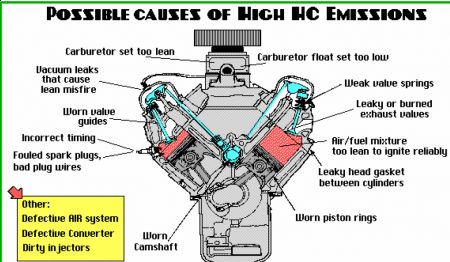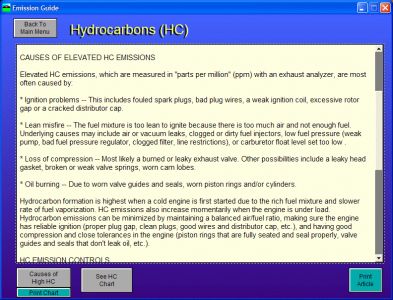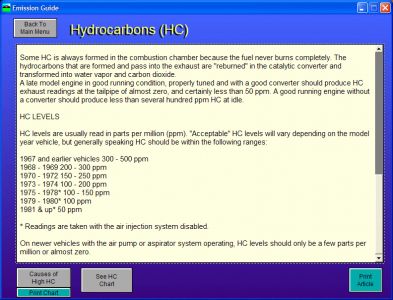15 mph
HC Max 93; Ave 21; Meas 94 - FAIL (BARELY)
CO Max 0.57; Ave 0.06; Meas 0.10 - PASS
NO Max 720; Ave 150; Meas 369 - PASS
25 mph
HC Max 59; Ave 13; Meas 59 - PASS (BARELY)
CO Max 0.55; Ave 0.05; Meas 0.04 - PASS
NO Max 774; Ave 136; Meas 74 - PASS
My question is, what's the easiest approach that will most likely pass the test? I'm asking here because everyone has an answer, but the answers are different; I figure I'll treat the 2carpros answer as definitive.
Background: My 1995 Saturn SL2, with about 125,000 miles, runs well and has received recommended service. Oil is fresh and the spark plugs have less than 5,000 miles. Driving is mixed. Sometimes on the freeway; sometimes in town. Historically, now that I think about it, the previous HC tests have been on the high side, but have always passed.
I figure some combination of the following:
1) Techron gas treatment or the like? That's what I hear most often, although some people have their other favorite fuel additives.
2) The smog inspection guy said to fill it with high-octane gas for the re-test, although others say to stick with regular; that high-octane would burn more slowly and thus might worsen the incomplete combustion and raise the HC measurement. Some people advocate filling up with a high-ethanol fuel or something else exotic (even if that were a good idea, I'm not sure where I'd get it in Southern California).
3) I see your Smog page suggests: "Drive at least 30 minutes before arriving at the Smog Check test facility to ensure the car or truck has reached full operating temperature." I didn't do that the first time (I drove enough to warm the engine, but less than 30 minutes); I'll be sure to get 30 minutes for the re-test. You also note: "The week of the Smog Check test, take the vehicle out for an extended drive"; it had been on the freeway in the recent era, but not immediately prior to the test.
So there it is: What's the best bet? Gas treatment? Gas grade? Or something else?
As a bonus question, are these relatively high HC numbers reasonable, or should I eventually take it to the shop and ask if they've got any bright ideas to improve combustion?
SPONSORED LINKS
Sunday, September 6th, 2009 AT 1:09 AM






